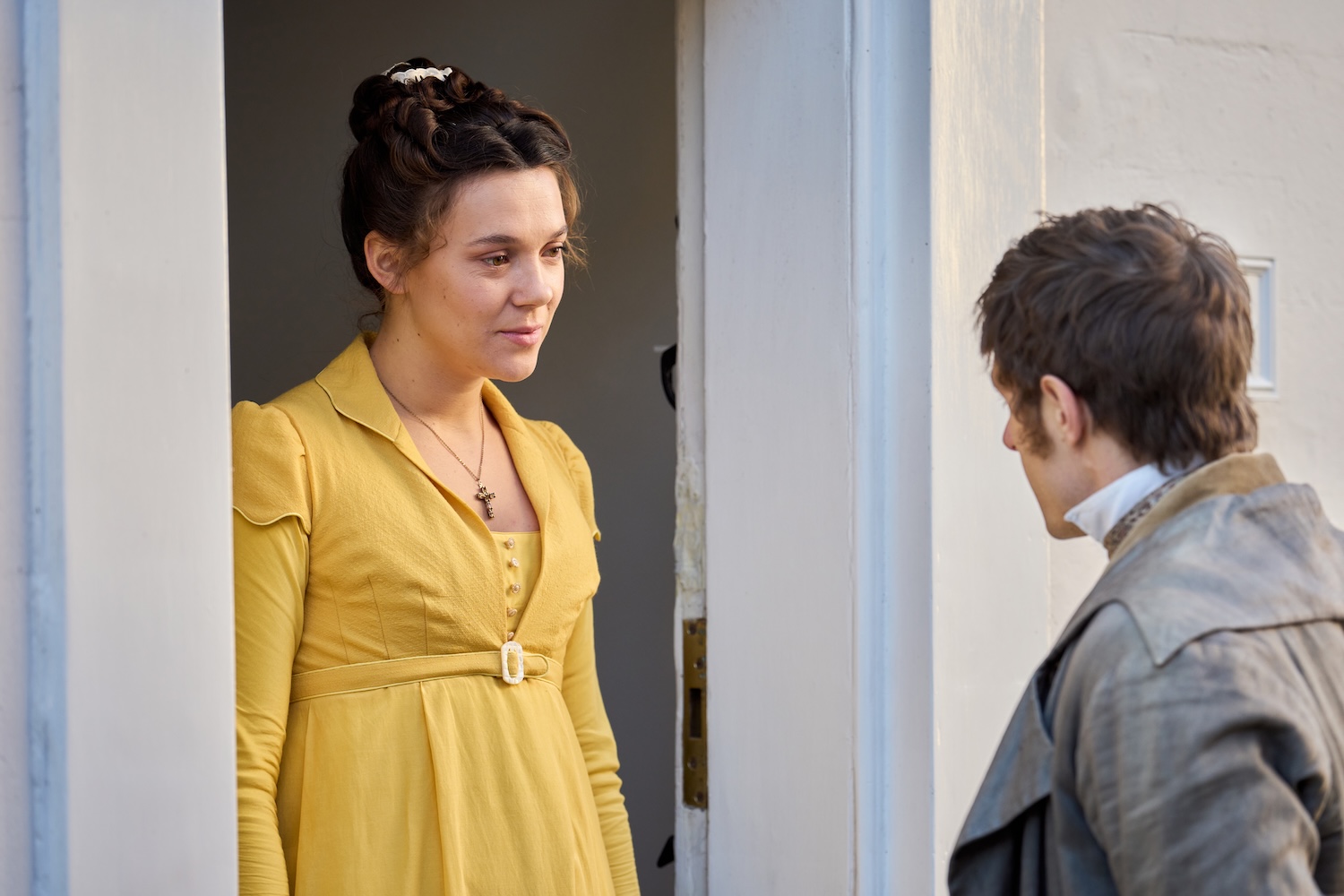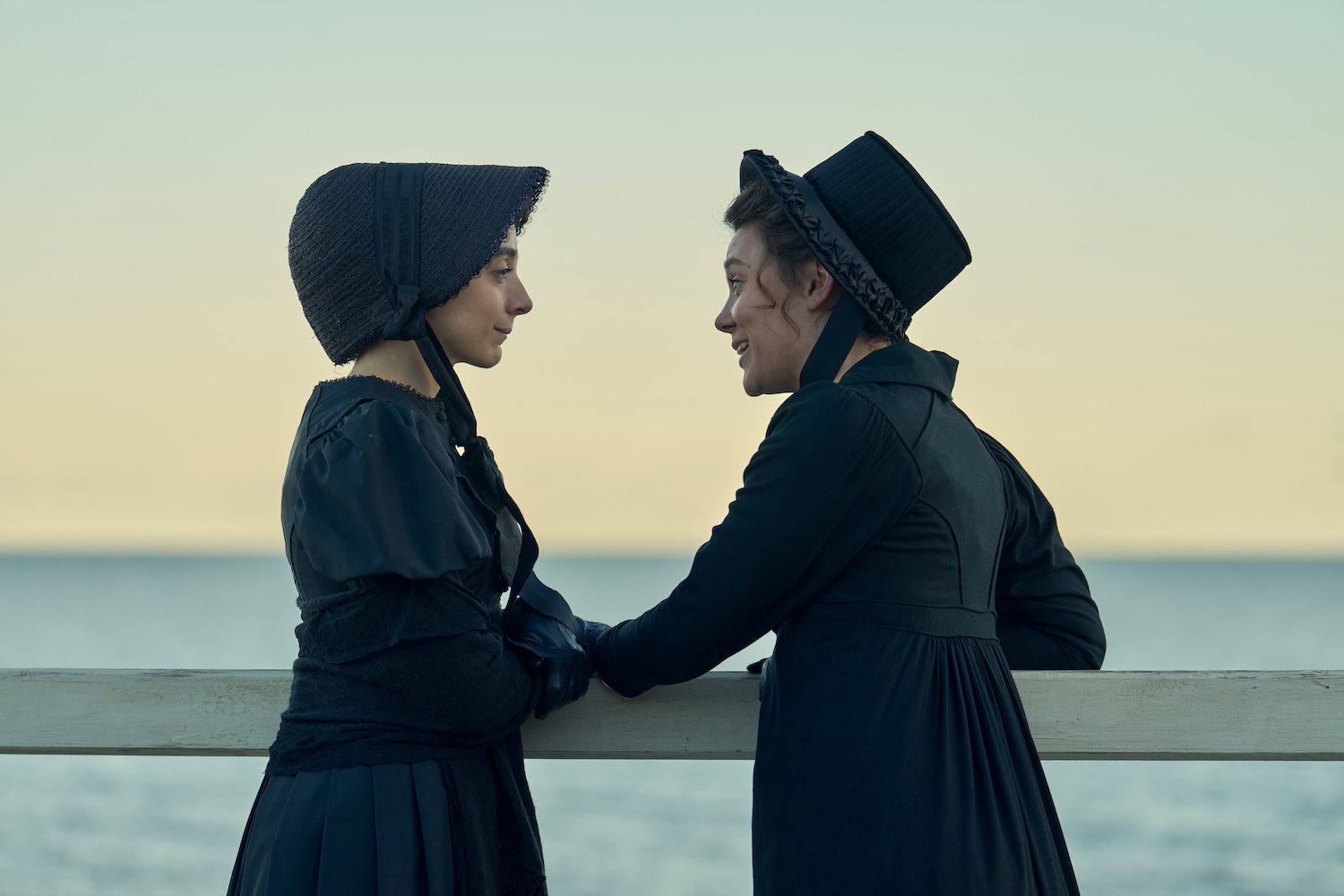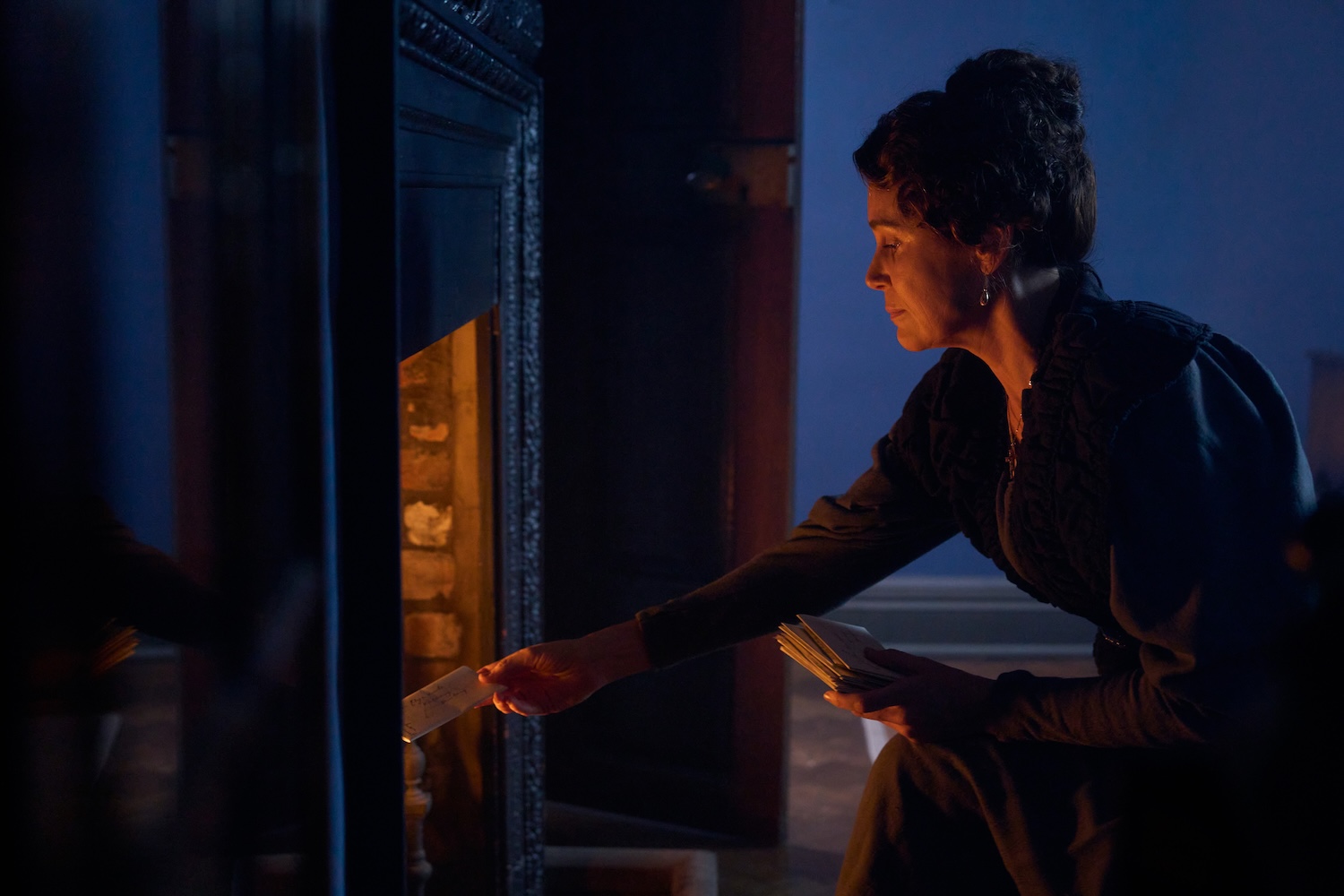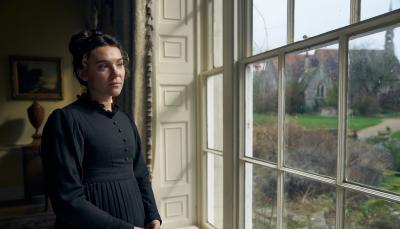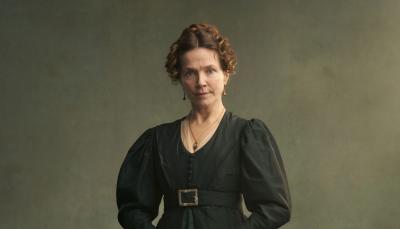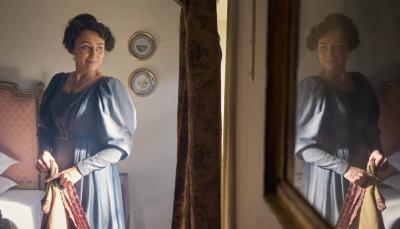'Miss Austen's' Final Episodes Reconsider Jane's Past
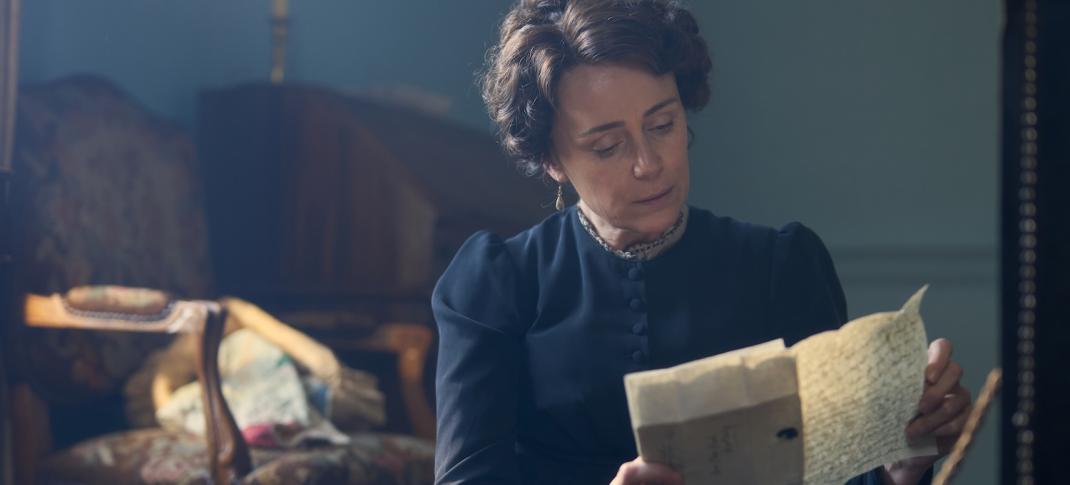
Keeley Hawes in "Miss Austen"
(Photo: Masterpiece)
As it must, everything in Miss Austen turns out well in the end. Well, for a given value of "okay" at any rate. Cassandra commits some literary vandalism, Jane's legacy is preserved, and we're given an explanation for why one of those things needed to happen to ensure the other, even if the (admittedly interesting) answer comes entirely too late in the story. In other words, the show concludes as it lived, confused about the tone it wants to strike and unsure about the larger points it wants to make.
The show is strongest when it leans into the bond of sisterhood at its center. Whether in the past or the present day, it is evident that her relationship with Jane is the North Star of Cassandra's life, and while your mileage may vary on whether this is a necessarily healthy thing, it's hard to deny its emotional heft. It's such a strong throughline that the present-day segments struggle under its weight; they simply cannot match the heart and warmth that colors virtually every moment we see onscreen between the Austen sisters.
Miss Austen isn't a bad drama, per se. There's a genuinely compelling historical drama about Jane's life here, with the central relationship with her sister at the heart. The idea that the great author wrote so profoundly about the bonds of sisterhood precisely because of her complicated (and, yes, co-dependent) relationship with Cassy is eminently watchable, and frames the creation of her works in a new way. Yet, Cassandra is the series' titular character and the figure who gets the least clear, or even remotely coherent, emotional arc.
Because despite its best efforts (and let me tell you the bit where plucky maid Dinah throws herself down the stairs in a bid to reunite Isabella and Lidderdale is unintentionally hilarious), the primary timeline scenes often feel as though they only exist to give us an excuse to have the flashbacks the show is much more interested in exploring. The scenes of the Austen sisters' past are not only (quite literally) brighter and sunnier, but they're emotionally richer and more layered. And, quite frankly, simply more fun to watch.
Patsy Ferran completely steals the back half of this season as Jane. Perhaps it's the inevitable effect of simply being Jane Austen, but both the character and her performance are riveting television. From Cassy and Hobday's charming dates and her devastating decision to turn down his marriage proposal to Jane's drunken rambling and blink and you'll miss it engagement at Manydown, it all feels like nothing so much as an unpublished Austen novel somehow willed into existence and brought to life onscreen.
It also certainly doesn't hurt that these are all characters we recognize and whose relationships we intuitively understand. No relationship in the primary timeline is as interesting or compelling as between the Austen sisters. Yes, the older Cassandra's open affection for Isabella is apparent, but their bond is not one of equals. And, as the final two episodes repeatedly point out, Cassandra doesn't know Isabella that well, given that the Lidderdale situation comes as a complete and total shock to her.
The show does manage some remarkably interesting moments with the character of sister-in-law Mary Austen; however, it only scratches the surface of the awkward and often genuinely sad tension between the women. (There's a moment where Mary remarks on the cruelty that Jane was capable of, that's genuinely breathtaking in its pained honesty, and the show doesn't pull any punches about how much Jane disliked her or how some of that anger was more than earned.)
The flashbacks are most interesting because they poke at several intriguing issues that most period dramas simply don't care to wrestle with. (Or, if they do, the problems are almost always solved swiftly and neatly, usually by way of a love match, much the same way Isabella and Lidderdale's happy ending makes the larger questions of Isabella's family and future nonexistent.)
As we follow the Austens from Steventon to Bath and beyond, the show is remarkably forthright about the increasingly difficult circumstances Jane and Cassy must live in. At one point, Jane desperately encourages her sister to wed, if only because it would provide her with the sort of financial security and safety she'll never have on her own. After Mr. Austen dies, economies are frequently discussed, as are the specifics of the money they're receiving from Edward and Frank. The house in Chawton is ultimately only achieved because of Edward's munificence, and only after his wife dies (when he once again needs at least semi-regular childcare).
It's a genteel sort of poverty, of course, but it's something that obviously weighs heavily on Jane, who remarks more than once about her inability to contribute to the household, and sinks into melancholy. The idea that Cassy ultimately chose to burn her sister's letters to hide Jane was a depressive (or possibly bipolar? it's not super clear) is the most genuinely interesting idea Miss Austen has put forth. It's a real shame that it doesn't really arrive until well into the third episode. There is a long literary history of mental health issues walking hand-in-hand with genius, and showing us some small portion of Jane's struggle with her inner darkness is riveting stuff.
(I would give so much to watch the version of this show that just explored Jane's life through this lens.)
Cassy, determinedly refusing Mr. Hobday for a second time, insists that she must put Jane's well-being before her own happiness, and that duty to her sister matters more than any prospect of love. This is... clunky, at best, given that it's not like Jane didn't exist back when Tom proposed. Cassandra has something of a martyr complex; that she loves her sister is both evident and apparent, but there's no doubt that she's made the concept of "being there for Jane" her entire personality.
(It doesn't help that her dying father basically tells her to, but the point stands.)
As she sobs over Jane's letters, lamenting that Jane blamed her refusal to marry Hobday on her promise to a dead man rather than understanding Cassy was staying single for her sake, it's... well, it's weird. It's much easier to think that Cassandra, still determined to keep her promise to the person she loved best, honored Jane's wishes that none of her darkness be preserved for posterity, but only the joy that lived in the pages of her books.
Miss Austen ends as happily as possible, given that one of the primary protagonists has been dead for several decades. But Isabella gets her happily ever after, and Cassandra gets to go home to her goats, content in the knowledge that she honored her sister's wishes and gave Mary some inoffensive content for the book she's writing. It's tidy enough, even the present-day storyline never reaches the heights of emotion contained in Jane's deathbed scene. (Reader, I bawled.)
But, then again, not everything can be on Jane Austen's level.
All episodes of Miss Austen are now streaming with PBS Passport, on the PBS app, and via the PBS Masterpiece Prime Video Channel. As always, check your local listings and streaming services.

